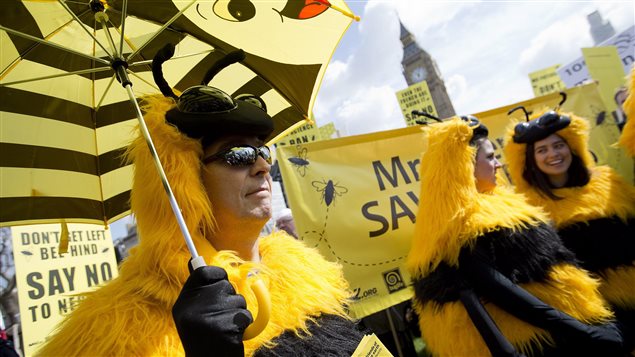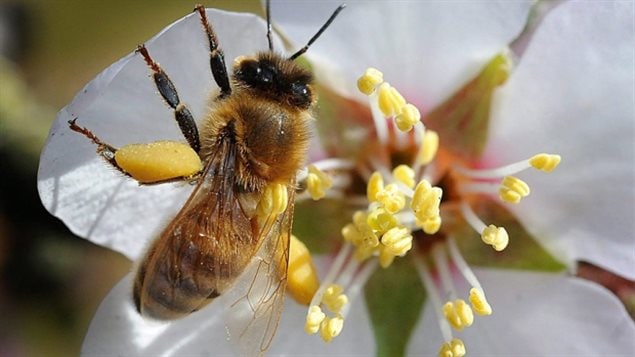The Canadian government is considering banning one of the widely-used neonicotinoid pesticides saying it is collecting in waterways and harming aquatic insects. Neonicontinoid pesticides, also known as neonics, have been restricted in some jurisdictions because of the risk they pose to bees.
Health Canada will consult the public for 90 days on the neonic called imidacloprid. It is used on grains, pulses, forestry and to get rid of ticks and fleas on pets. The government proposes to phase out all agricultural uses of this chemical and most other outdoor uses over three to five years.
Imidacloprid use called unsustainable
It says the “the continued high volume use of imidacloprid in agricultural areas is not sustainable. The environmental assessment also found that there is a potential risk to birds and small mammals from feeding on seeds that are treated with imidacloprid.”

Some neonics already banned
The cities of Vancouver and Montreal have already decided to ban the use of neonics and, at the provincial level, Ontario and Quebec limit their use.
Bee expert Mark Winston told CBC News that eliminating this class of pesticides will help bees, but not solve the entire bee crisis.
The advocacy group, Environmental Defence, applauded the federal government’s proposal to ban imidacloprid but an email to CBC said the timeline was unnecessarily long. Maggie MacDonald wrote, “The federal government must accelerate the phase-out to prevent further harm to aquatic wildlife and pollinators.”







For reasons beyond our control, and for an undetermined period of time, our comment section is now closed. However, our social networks remain open to your contributions.